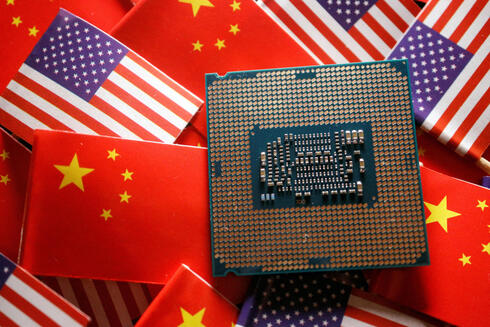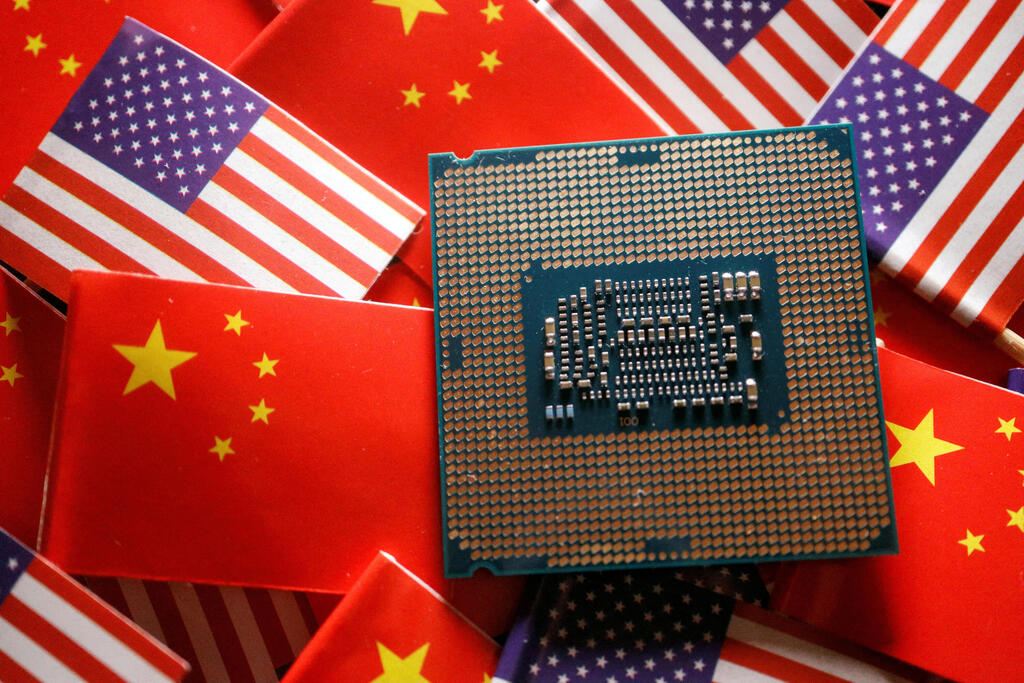
Trump and Harris align on keeping China out of AI competition
Trump and Harris align on keeping China out of AI competition
Despite fierce rivalry, both camps stand united on limiting China’s chip access before the elections.
It’s difficult to find an issue on which the Biden-Harris administration and Trump agree. The economy, abortion, civil rights, immigration, even TikTok—all see policy differences and opposing steps from both sides.
However, there is one area where the camps almost unanimously align: China, specifically efforts to prevent it from developing advanced artificial intelligence (AI) capabilities.
1 View gallery


Chips on background of flags of China and USA
(Photo: Reuters/Florence Lo/Illustration/File Photo)
Since October 2022, the United States and China have been waging a “chip war” over control and access to high-performance chips and the ability to manufacture them. The Biden-Harris administration is credited with recent moves in this battle, though its origins trace back to Trump’s presidency.
During his time in office, Trump identified China as America’s most significant economic rival and imposed tariffs on Chinese raw materials and products. In 2019, he sanctioned the Chinese tech giant Huawei, blocking access to equipment and chips needed for fifth-generation devices.
Upon taking office, Biden adopted Trump’s stance on China, refining the focus on chips and AI. In October 2022, the administration banned exports of high-performance chips, especially AI chips, to China to hinder its development of advanced AI models. This marked the first salvo in the chip war, followed by ongoing exchanges over the past two years. China responded by restricting raw materials for advanced chips and banning American products like those from Intel and Apple. The Biden administration countered with tighter export restrictions.
Simultaneously, Biden’s administration pushed to develop domestic chip manufacturing. The 2022 CHIPS Act allocated $52.7 billion in subsidies and grants for chip factories. The results are beginning to show, as companies like TSMC (a Taiwanese leader in advanced chip production), Nvidia, Intel, and Apple have received substantial grants and are actively establishing U.S.-based facilities.
Assessing the chip war's impact remains challenging. The boycott has not prevented Chinese companies from developing advanced GenAI models, though it may have slowed progress as they sought alternatives to Nvidia’s high-performance chips, sometimes acquiring them via black-market channels. Meanwhile, China is making strides in developing domestic high-performance chip production, with limited early successes. Ultimately, China may attain independent advanced chip production, though that outcome remains years away.
Likewise, the U.S. efforts to build a domestic chip manufacturing base are long-term undertakings. Establishing an advanced chip factory is complex, time-intensive, and costly. The fruits of this initiative are unlikely to benefit Biden directly; instead, they’ll likely impact the winner of the next election. Whether it’s Harris or Trump, the current chip policy toward China is likely to persist. Harris, naturally, would aim to advance a key component of Biden’s legacy, while Trump would likely embrace credit for creating local jobs through chip manufacturing and is unlikely to alter his aggressive stance on China, in chips or otherwise.














